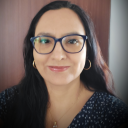Having spent most of my professional life in Perú’s non-profit sector, I have seen many behaviours and patterns that have prioritised and perpetuated the knowledge of power holders – mostly international donors – over community and indigenous knowledge. This has created a hierarchy of knowledge which has entrenched power dynamics between grassroots, national, and international organisations. This knowledge hierarchy is further compounded by the scarcity of resources, ever-changing donor priorities and by the complicity of some in the development system.
At the base of these disparate dynamics, is the fact that we – as development professionals – have placed a high value on technical knowledge. This knowledge is dominated and owned by technical thematic specialists. It has its own language (‘development speak’) around goals, indicators, and activities. It is exclusionary.
It rarely translates into local languages and even translating into Spanish can be a challenge. It is often misunderstood and seen as confusing by the communities we work with and, most importantly, acts as another barrier to grassroots groups taking their seat at the decision-making table. Being seen as the lowest rung on the knowledge hierarchy is used as another ‘reason’ to keep community groups at the bottom of the pile when it comes to resource allocation.
‘In a mirror image of the capitalist system, we have built a ‘development industry’ which always seeks to grow – needing more funds, more staff, and a bigger footprint.’
In our hearts we know this is an arrogant and colonial way of working. In our heads, we know it is ineffective because we know that people and organisations at the grassroots level have the practical knowledge about what works in their territories. They know what the particularities are, and they know their contexts deeply. This leads them to generate solutions more likely to be accepted by their communities and more likely to be replicable and scalable among similar peoples and locations. We know all of this, yet the knowledge hierarchy persists.
This is because flipping the knowledge hierarchy faces resistance in our sector. In a mirror image of the capitalist system, we have built a ‘development industry’ which always seeks to grow – needing more funds, more staff, and a bigger footprint. This is a development industry that must hold space – not share it. To maintain its pre-eminence, it has created a need for complexity, bureaucracy, and technical solutions – and this status quo is fuelled and upheld by many.
These hyper-specialised bureaucracies have served to widen the gaps between international organisations, national organisations, and community groups. This gap is consciously or subconsciously maintained by many ‘local’ technical specialists who are fluent in development speak (and often other European languages too) and able respond to technical calls for proposals and manage complex monitoring and evaluation frameworks. These people (of which I am also part of) have studied and worked hard and have a defined place in the current system. They (we) therefore need to play a leading role in championing community and indigenous knowledge.
It is important to note that by ‘local’ I mean people who share the same nationality where the work is taking place. It’s also important to say how misleading this term can be. I am Peruvian – from Lima – which means, for example, I am not ‘’local’ to Loreto. I can’t claim to know the experiences of people who live there – our realties are different. International donors need to understand that people in the global south aren’t a homogenised group, and what constitutes ‘local’ depends on where you are from.
To truly flip the knowledge hierarchy, we need to embrace horizontal and collective ways of working. We need to share and disperse power rather than become preoccupied with what could end up being a performative shift from north to south. Thinking in verticals won’t be enough to genuinely shift power. It will certainly be insufficient when it comes to dismantling the knowledge hierarchy.
What we need is a mindset shift that looks to the margins rather than to the centres. We need genuinely participatory processes which focus on the reciprocity of learning and on collective decision-making, so we share decisions, power, and resources. We need to think about whose knowledge matters, and by valuing all knowledge we will establish more egalitarian ways of working which create space and respect for all.
Fabiola Quesada-Andrade is the Learning Advisor for Global Fund for Women based in Perú and has an MSc Sustainable Development from the University of Sussex.



Comments (0)
Good job dear Fabiola